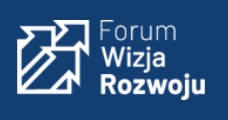WIZJA ROZWOJU – 20.06.2022 – 09:05–10:15 – Sala 6 – Wpływ sytuacji geopolitycznej na funkcjonowanie gospodarki morskiej

WIZJA ROZWOJU – 20.06.2022 – 09:05–10:15 – Sala 6 – The geopolitical situation influence on the maritime economy
A maritime economy is an area where a variety of goods and resources, such as food, oil and gas, are produced.
UNCTAD: Oceans and seas cover over two-thirds of the earth’s surface, provide food and minerals, generate oxygen, absorb greenhouse gases and keep climate change in check, determine weather patterns and temperatures, and serve as highways for sea-borne international trade. Oceans and seas can play a major role in contributing to achieving sustainable development, economic growth, and livelihoods.
OECD: The world’s ocean and seas hold the promise of immense resource wealth. Moreover, they are increasingly recognised as indispensable for addressing many of the global challenges facing the planet in the decades to come, from world food security and climate change to the provision of energy, natural resources and improved medical care. The global ocean economy, measured in terms of the ocean-based industries’ contribution to economic output and employment, is significant.
Gospodarka morska to obszar odpowiadający za wytwarzanie, a następnie dostarczanie rozmaitych dóbr i zasobów takich, jak żywność, ropę naftową czy gaz.
Polska mając dostęp do morza rozbudowuje infrastrukturę oraz zasoby transportowe w celu zwiększania bezpośredniego dostępu do transportowanych surowców, półfabrykatów oraz gotowych wyrobów. Możliwości przeładunkowe w portach są strategicznymi elementami funkcjonowania silnego bezpiecznego również energetycznie państwa. Występujące konflikty w różnych częściach świata oraz walka o rynki zbytu powodują że możliwości korzystania z infrastruktury portowej oraz krytycznej stanowi poważny argument w negocjacjach z partnerami na poziomie podmiotów gospodarczych i państw.
- Dorota Arciszewska-Mielewczyk – Prezes Zarządu Polskie Linie Oceaniczne S.A.
- Ireneusz Ćwirko – Prezes Zarządu CRIST S.A.
- Michał Graban – Politolog, publicysta, samorządowiec i badacz współczesnych przeobrażeń cywilizacyjnych
- Łukasz Greinke – Prezes Zarządu, Dyrektor Naczelny Zarząd Polskiego Portu Gdańsk S.A.
- Marek Grzybowski – Profesor Uniwersytetu Morskiego w Gdyni oraz Prezes Zarządu Bałtyckiego Klastra Morskiego i Kosmicznego
- Andrzej Madejski – Prezes Zarządu Polska Żegluga Bałtycka S.A.
- Adam Ruszkowski – Prezes Zarządu Remontowa Holding S.A
- Grzegorz Wardzyński – Dyrektor w Pionie Technicznym Polskiej Żeglugi Morskiej
OECD:
Calculations on the basis of the OECD’s Ocean Economy Database estimate the ocean economy’s output in 2010 (the base year for the calculations) at USD 1.5 trillion in value added, or approximately 2.5% of world gross value added (GVA). This is roughly equivalent to the size of the Canadian economy that same year. In terms of employment, the ocean-based industries contributed some 31 million direct full-time jobs in 2010 (roughly equal to France’s entire labour force that year). These are very conservative estimates, not least because several important activities in the ocean economy (e.g. marine business and finance, ocean surveillance, marine biotechnology) are not captured due to lack of data.
The global ocean economy could double in size by 2030, reaching a gross value added of around USD 3 trillion (roughly equivalent to the size of the German economy in 2010) following the business-as-usual scenario. The value added of some ocean industries is set to grow faster than the world economy. These
include for example marine aquaculture, capture fisheries, fish processing, offshore wind, and port activities. Employment in ocean-based industries as a whole is also set to more than double by 2030 to more than 40 million (roughly the size of Germany’s current labour force), thereby outpacing markedly the overall
growth rate of the global workforce. Above-average job growth is expected in almost all the sectors included in the study, with especially rapid employment growth occurring for example in marine aquaculture, fish processing, offshore wind and port activities.
